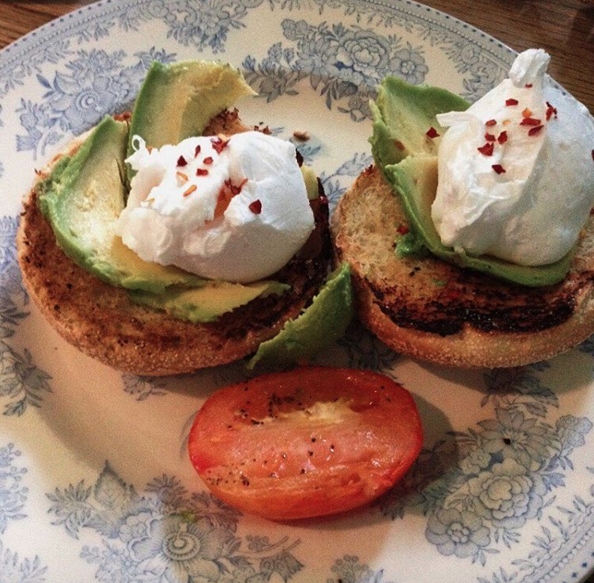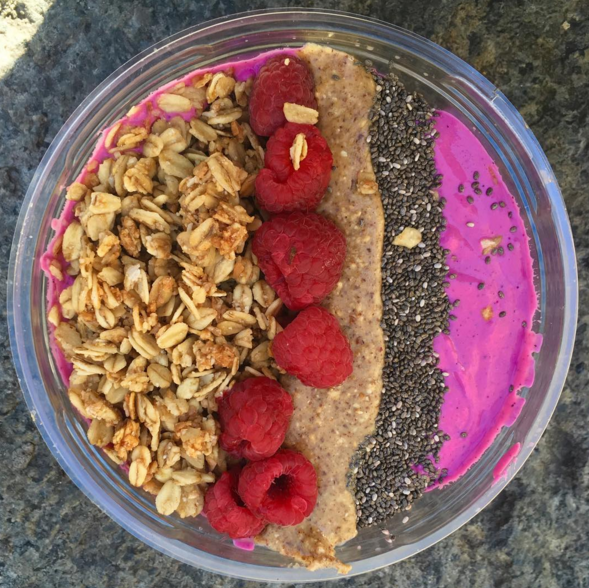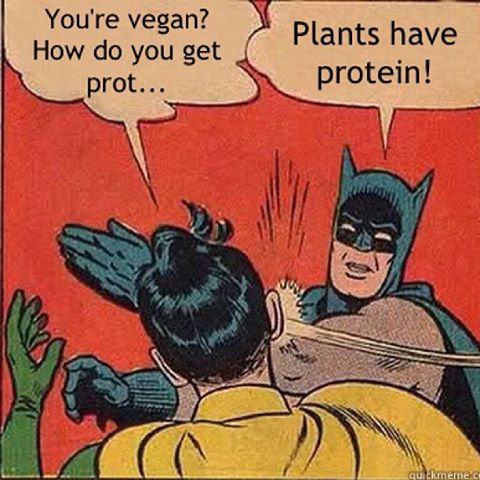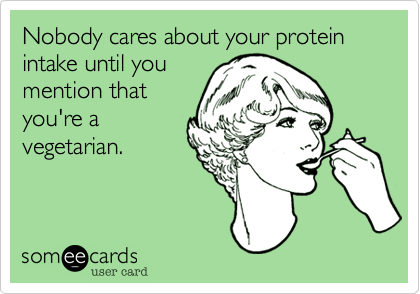Food trends are always coming and going. Whether it be kale, veggie juices, or sushi, each year a new food somehow makes its way onto our plate and all of a sudden we find it to not only be delicious but an absolute necessity.
The same goes for food diets. Within recent years, more and more people have been ditching their steaks for tofu and becoming vegetarian or even vegan. Even though we may see it as a new trend, vegetarianism has actually been around since Ancient Greece. The most famous veg-head from that era was Pythagoras — yeah, the same guy who created the triangle theory that you learned about in high school.
Is ditching your fave chicken salad worth it? Does going vegetarian mean never being able to indulge in sushi Saturdays anymore? We compiled a list of vegetarian diets and what they entail. Also included are pictures of vegan and vegetarian foods that seem like perfectly valid reasons to give into these diets.
Check it out — you might find that one of these diets call to you, or that you’re already eating like this and didn’t know it.
Pescatarian

Photo courtesy of @chasingfood on Instagram
Includes: Fish, dairy products, and eggs
Excludes: Red meat and poultry
While not completely a vegetarian, pescatarians are still cutting out red meat and chicken from their diet. The health benefits of adopting a pescatarian diet are innumerable. For example, fish and shellfish provide a healthier source of protein without the high levels of saturated fat that red meat tends to have.
The main drawback of having an increased amount of fish in your diet is toxicity. Some fish have high levels of mercury, which can effect blood pressure, memory, and fertility in women. Fortunately, high levels of mercury are mainly found in larger fish such as shark, swordfish, and tilefish, which aren’t typically eaten frequently.
Lacto-Ovo Vegetarian

Photo by Claire Webster
Includes: Dairy and eggs
Excludes: Red meat, poultry, and fish
What’s up with the strange name? In Latin, “lacto” means milk and “ovo” means eggs. In simpler terms, this is just your standard vegetarian.
As for the health benefits, there have been many studies done to examine the effects of going vegetarian. One study done by the American Society for Nutrition found that vegetarians have a 32% lower risk of getting heart disease compared to those who eat meat. In regards to the environment, a study on the lifecycle of farm products found that red meat is responsible for 10-40 times as many greenhouse gas emissions than vegetables are.
A myth (and con) about becoming a vegetarian is that it is a healthy diet. Yes, getting rid of meat from your diet can be healthier, but in no way does it guarantee that you will eat healthy. French fries, cake, candy, and fruit-flavored drinks are all vegetarian, but are not always the healthiest options; foods such as Oreos, Ritz crackers, and Nutter Butters are also surprisingly vegan.
Ovo-Vegetarian

Photo by Claire Webster
Includes: Eggs
Excludes: Red meat, poultry, fish, and milk
This is typically the diet of those who are lactose-intolerant and want to be vegetarian. The same health benefits that standard vegetarians have apply to ovo-vegetarians. There have been many studies conducted (like this one from Harvard or this one conducted at the International Agency for Research on Cancer) that note that processed red meat has high levels of carcinogenicity (the amount of cancer-causing agents).
If you currently eat red meat, don’t panic! Most studies focus on processed red meat, meaning it has been transformed by salting, fermentation, curing, or smoking.
Red meat in and of itself actually has a ton of beneficial proteins and micro-nutrients like B vitamins, iron, and zinc. However, just to be safe, removing red meat from your diet would take away one unknown factor about how the food on your plate got there and what is actually giving to your body.
One drawback that you may want to consider about being ovo-vegetarian is the amount of cholesterol intake. If you increase your intake of eggs, your dietary cholesterol racks up quickly. One egg provides about 6 grams of protein, which is a positive aspect; however, it also contains 186 milligrams of dietary cholesterol. Make sure to keep your foods varied so you’re not getting too much of one thing (e.g. protein or cholesterol).
Vegan

Photo by Claire Webster
Includes: No animal products
Excludes: Red meat, poultry, fish, milk, and eggs
Being in touch with Mother Nature through going vegan (meaning an increased amount of fruits and veggies) allows for your body to benefit immensely from natural energy sources. However, if you are currently not vegan but are thinking about transitioning, make sure you do some thorough research before you commit.
If your body is used to eating meat or even just following a vegetarian diet, the change to veganism could at first be tough on your body since it may be a drastic adjustment. However, once you push through the first couple of weeks, you will feel the amazing advantages including more energy, clearer skin, and less bloating. Some people say that after going vegan they now feel “cleaner and clearer” and “well and energized every single day.” If you’re ever so tempted to ditch the animal products, I seriously recommend checking out some vegan blogs for inspo.
The con of being a vegan includes the difficulty of making sure you are getting the correct amount of protein and nutrients. In order to make sure that you are receiving these important pieces of your diet, it may be necessary to buy supplements. For example, taking omega-3 pills will make up for the lack of healthy fats from not eating seafood.
If you decide to pursue any of these diets, no matter the reason, always be prepared to answer one specific question…

Photo courtesy of theveganasansa.com
Because let’s be honest:

Photo courtesy of someecards


